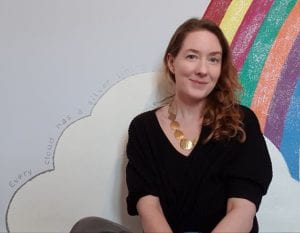Inspired by the Big Issue’s regular feature Letter to My Younger Self, we’re asking staff to think back to their own experiences as a student and tell us what advice they would give to their undergraduate selves.
Next up from the Study Skills team is Alison Marshall, Study Skills Tutor.
What and where did you study?
I went to Exeter and did a BA in Ancient History and Archaeology (largely because I liked watching Time Team on the telly and thought archaeology looked like fun). After that I did an MA in Medieval Studies and a PhD in Medieval History at the University of Bristol.
Did you experience culture shock when you started university?
Various family members went to university before me, so I had the advantage of being able to visit them and experience a bit of the culture. The biggest shock for me was going from a full timetable at college to having only a handful of contact hours per week at university. I’ve always struggled with self-discipline, so I slept late a lot and watched loads of rubbish daytime telly. At the time I thought it was brilliant, but in retrospect I think I’d have been a lot happier if I’d created a routine for myself and spent some of that ‘free’ time a bit more productively.
The other thing I found difficult to adjust to was suddenly being surrounded by lots and lots of people I didn’t know. Obviously I knew that was part and parcel of going to university, but I was excruciatingly shy and the thought of not knowing anyone was really daunting, so I buried my head in the sand. I wish I’d spent some time thinking about how I was going to make friends and settle in before I started – joining a few more societies (and actually going along to them) would have been a really good idea.
What was your biggest failure and what did you learn from it?
My biggest failure happened just before I started university: I messed up my A-levels and missed out on my first-choice university due to an unfortunate combination of laziness, stupidity and bad luck. I tend not to let go of things quickly, so I beat myself up about it for a good few years afterwards. With the benefit of hindsight, though, I can see it all worked out for the best. I mean, what’s so good about Oxford anyway? I’d have had to work really hard, and knowing me that probably wouldn’t have gone very well! I ended up having a great time at Exeter and I loved my degree course. I also met my husband there – we’ve been together for 22 years and have three beautiful children – so you could argue that messing up my A-levels was the best thing I ever did. In essence, what I learnt is that every cloud has a silver lining: you might not see it for a while or sometimes you might have to look really hard, but it’s there.
What are you most proud of about your time at university?
Well, I survived an archaeological dig which involved camping on a wet and muddy hillside in Wales for four weeks. There was a copious amount of rain, boozing, late nights, early mornings and digging very big trenches with a mattock whilst still hungover. I fell down the spoil heap several times, accompanied by the wheelbarrow. It was character-building, but the word ‘camping’ brings me out in a cold sweat even now.
Ultimately, though, I’m most proud that I came away from university with a First. I wish I could say that I’d learnt from my A-levels and put in a huge amount of hard work, but that would be a lie. I left every essay until the last minute and had some horrible cramming sessions before exams. I made it much more difficult for myself than it needed to be! Thankfully, luck was on my side when it came to my final exams. I’m really proud of my degree result (if not, perhaps, the way I went about achieving it) and it helped put a few demons to rest.
What was the best bit of feedback you received?
I ashamed to say that I can’t remember. I liked getting positive feedback because it made me feel pleasantly smug for a while. But most of the time I don’t think I really understood the feedback I was getting, and I was too shy to ask the lecturers to explain it to me. We didn’t have a study skills team to talk things through with, so I mostly just forgot about it.
What advice would you give to your undergraduate self?
It would be tempting to go all mumsy and give myself a lecture about boys and booze, but nobody appreciates that sort of advice, so instead I’d probably tell myself to look into something called freewriting. I used to find academic writing completely agonising because I’d put pressure on myself to get every sentence perfect straight away. As a consequence I’d procrastinate, which led to lots of stressful last-minute essays. With freewriting you just splurge out a very rough first draft, then spend lots of time editing later on. It’s really liberating for people with perfectionist tendencies like me!






